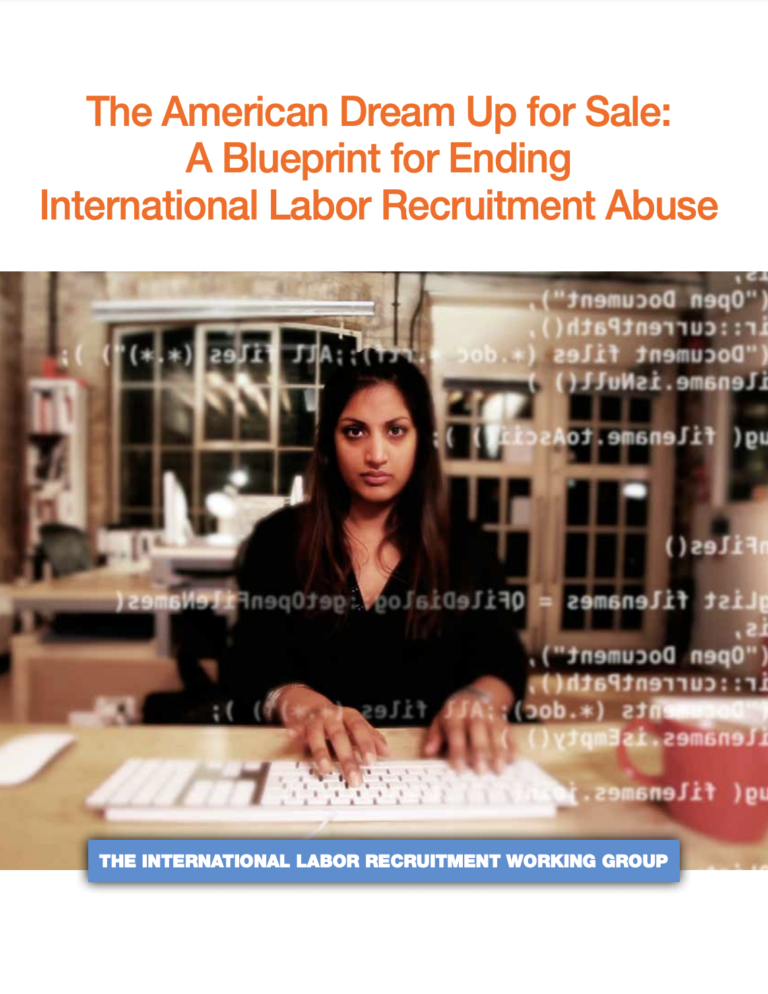This report documents findings about the level of recruitment abuse in the United States work visa system and gaps in worker protections.
Each year, hundreds of thousands of people from around the world are recruited to work in the United States on temporary work visas. Internationally recruited workers are employed in a wide range of U.S. industries, from low-wage jobs in agriculture and landscaping to higher-wage jobs in technology, nursing and teaching. They enter the United States on a dizzying array of visas, such as H-1B, H-2A, H-2B, J-1, A-3, G-5, EB-3, B-1, O-1, P-3, L, OPT and TN visas, each with its own rules and requirements. This report will demonstrate two key findings regarding the current U.S. work visa system:
1) Regardless of visa category, employment sector, race, gender or national origin, internationally recruited workers face disturbingly common patterns of recruitment abuse, including fraud, discrimination, severe economic coercion, retaliation, blacklisting and, in some cases, forced labor, indentured servitude, debt bondage and human trafficking.
2) Disparate rules and requirements for workers, employers and recruiters, as well as lax enforcement of the regulations that do exist, allow and even incentivize recruiters and employers to engage in abuses.
The International Labor Recruitment Working Group (“the Working Group”) seeks to end the systemic abuse of international workers who are recruited to work in the United States. By convening workers’ rights advocates across labor sectors, the Working Group has undertaken a thorough analysis of the current regulatory and enforcement framework to identify the shortcomings and gaps in worker protections. This report aims to bring the voices of internationally recruited workers of all skill and wage levels into policy discussions to illustrate the extent of the problems with international labor recruitment practices. This report shows how structural flaws in work visa programs increase the vulnerability of workers to human trafficking.

